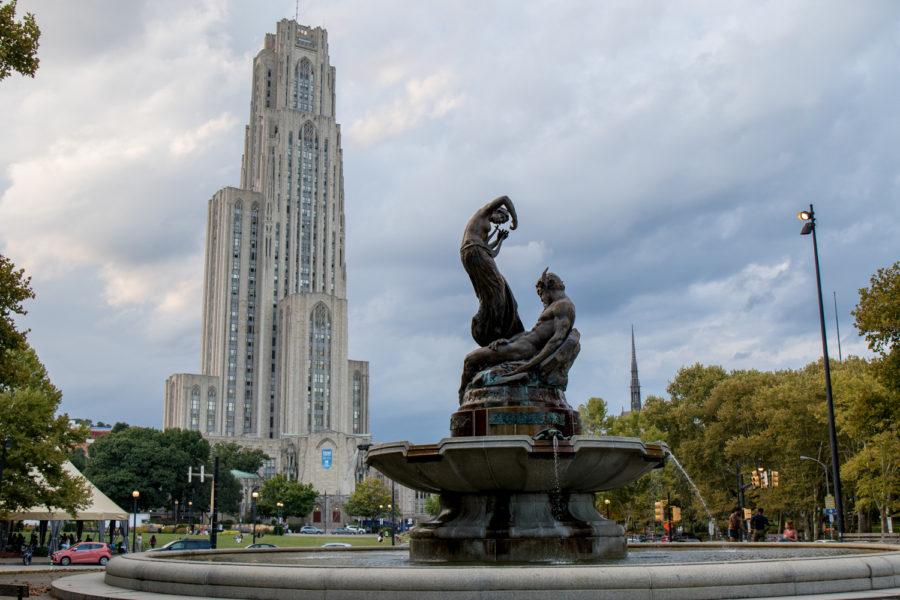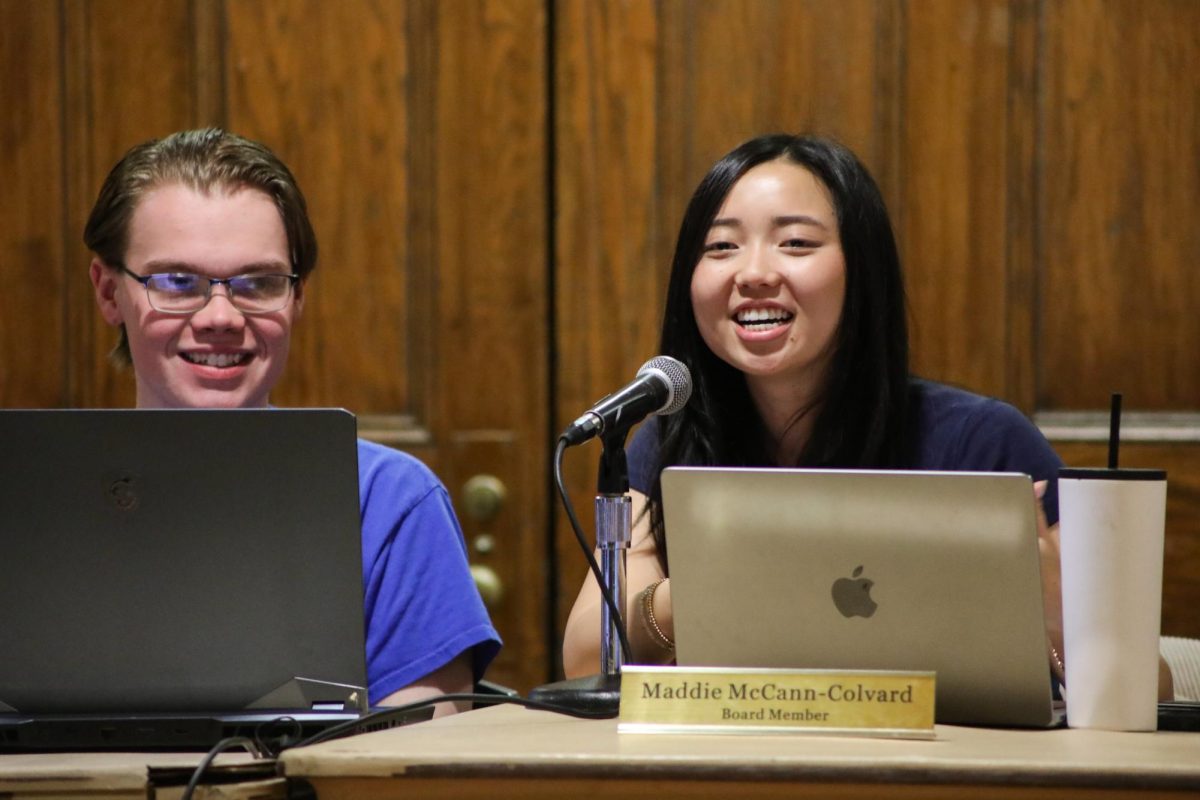Opinion | Your education is a privilege, not a chore
The Cathedral of Learning alongside the Mary Schenley Memorial Fountain.
August 26, 2022
Most university students know that feeling when a professor cancels class — the sudden happiness of not having to sit through another dull lecture, not having to socialize with fellow students and not having to leave the comfort of your bed.
But it’s truly ironic to celebrate the cancellation of a program you’ve allocated so much of your time and money toward. Students work hard to get into their university of choice and then applaud the cancellation of an event for which they sacrificed considerable resources.
Those of us lucky enough to attend university often view our schoolwork as a chore, not as a privilege — especially those coming from an existing place of privilege. Young adults no longer seem to care so much about the education itself or the expansion of knowledge and personal growth that comes from active participation in higher education. Instead, we have been socialized to apply more emphasis on the end goal — that shiny degree that acts as a pricey key by which you can pursue a better future — rather than the journey.
It is important to first acknowledge that not all university students are subject to this predicament. Many individuals face barriers to receiving an education that require them to work harder to secure an acceptance and subsequently a degree at any university, especially a highly accredited and competitive one such as Pitt. Because of all the obstacles that lower-income, first-generation and other disadvantaged students must overcome in order to attend university, these students tend to be more grateful for their education, exhibiting greater rates of satisfaction, increased learning gains and a heightened ability to overcome setbacks when compared to their peers.
This is probably because these individuals are more appreciative of their education after having put in the personal work to acquire it — they know, better than anyone, what a college degree is worth.
Today, most of us value higher education not for the experience itself, but for the degree which acts as a symbol of success. A degree leads to increased access to job opportunities, increased marketability, increased earning potential, increased job security and increased ability to weather adversity. A degree is a title of high value in a capitalist society. A degree is insurance for a happy life — or so the mainstream tells us.
Personally, my hometown’s school district — Lower Merion School District — is one of the best public school systems in the country. As a low-income student growing up amid high-income peers, I understood the privilege I was granted simply being able to attend these schools. I understood — partly from my socio-economic position, partly from listening to friends completely disregard their privilege and partly from my father, who attended inner-city schools and worked full-time to finance his college education — that few people had access to similar resources.
Our schoolwork was rigorous — most students saw school as a pain, an annoying but necessary step toward a successful future. Most worked hard simply for the letter grade and not for intellectual growth. As I got older, I realized I owed it to those less fortunate — those suffering under educational apartheid and those risking their lives for the education my peers were so unappreciative of — to acknowledge how lucky I was and to take advantage of my resources.
Once you recognize the privilege of a college education, you develop greater appreciation for your coursework. You study not for the purpose of obtaining an ordained piece of paper that states you’ve met a series of predetermined requirements, but rather for the education itself. We have a tendency to place so much emphasis on that decree of learning that we overlook what we’re actually spending our money on — the ability to learn in an organized, sophisticated environment with a cultivated focus on an area of interest.
The classroom can be an influential sphere of self-growth if you allow it to be. Engaged pedagogy is a term coined by author bell hooks that entails the integration of real life and classroom lessons to generate interpersonal growth between students and teachers. Engaged pedagogy is a philosophy of both teaching and learning that encourages individuals to develop honest relationships with each other and with the learning material. Full participation in course materials and discussions, according to hooks, creates mutual understanding between individuals, expands the heart and mind to invaluable experiences and teaches us how to become better learners — both in and outside of the classroom.
Engaged pedagogy — and similar methods that place value on personal growth over formal titles — encourages students to view knowledge as a tool that can strengthen our common good. We learn that there is greater value to an education than receiving a good grade, that learning can create mutual understanding and solve important issues and that learning is a privilege not granted to all. As we commence the school year, we should strive for engaged pedagogy that recognizes the value of academic discourse and enables genuine, interpersonal growth.
We can develop greater satisfaction, growth and emotional depth when we appropriately value our schoolwork instead of viewing it as yet another task. Engagement allows for true learning that benefits students in a number of deeply profound ways that are of little value to corporations, yet of significant value to ourselves and those around us. It helps us become better citizens, learn the difference between good and bad, see the importance of hard work and guide our minds and hearts on the best paths. Education is good for society, it is good for the world, and it is good for our own happiness.
Whether you come from a place of privilege or disadvantage, all of us at Pitt need to take a step back, recognize our privilege and then reshape the way we value education. We who are lucky enough to receive an education must use that advantage to the best of our ability — that is what we should be going to school for. There are millions of disadvantaged adults longing for the experiences we see as bothersome chores and, at the end of the day, our knowledge is the only thing we’ve got.
Sarah Liez writes primarily about gender issues and social phenomena. Write to her at sjl88@pitt.edu.



